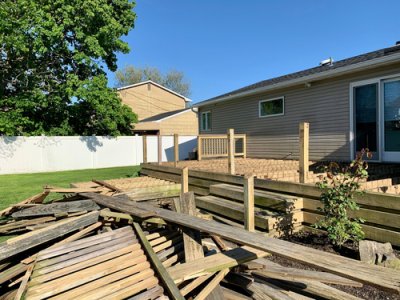Jake
Well-known member
- Oct 30, 2023
- 402
- 106
I wanted to share this reddit post I came across recently as I want to get your thoughts. The user is discussing an issue he is having with enclosing a portion of their patio that is resulting in a permitting issue with the city. There is another patio space that was never permitted to begin with, that is currently adjacent to the current patio space. Due to this, they will be required to file a permit for the full square footage of both patios together as a completely new project, which comes to be about 370 square feet in total.
Their main concern, and this is where the question comes in, is there any "grandfathering" rules that would make them exempt from having to file a permit on the old patio since it's been there close to 20 years already? Especially if it's proven to have existed for that time?
Has anyone here had similar experiences to this?
Their main concern, and this is where the question comes in, is there any "grandfathering" rules that would make them exempt from having to file a permit on the old patio since it's been there close to 20 years already? Especially if it's proven to have existed for that time?
Has anyone here had similar experiences to this?
- Location
- Denver, Colorado, United States
